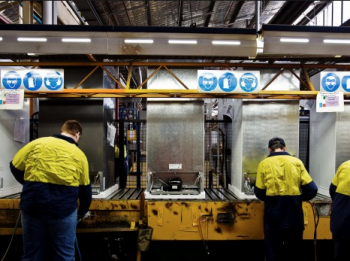
ACCC Gas Inquiry – Preliminary Findings
We have previously warned of the perfect storm looming in Australia’s LNG market, as substantial export commitments threaten domestic supply. The ACCC has launched an inquiry into this opaque market, and the preliminary findings suggest the market has changed dramatically.
The ACCC has noted that many aspects of the east coast gas market are opaque, with nearly all points of the value chain dominated by large players with confidential, bi-lateral agreements. While price discovery is near impossible, the ACCC has observed that the major LNG projects have indeed upended the east coast gas market, perhaps permanently, and there has been a dearth of offers for the supply of gas in recent years.
LNG demand already equals the total domestic demand of the east coast gas market. By the time all major projects are operational, the east coast production will need to have tripled to meet both LNG and domestic demand. The ACCC considers that despite the early expectation of a gas production boom, the east coast market seems to be perhaps one of the few gas markets in the world which is now living under the shadow of supply uncertainty.
The substantial increase in demand has disrupted the supply of domestic gas. The ACCC has evidence that many domestic users went from a market where they received 3-5 offers of supply on terms that were able to be negotiated, to one where they received zero or one true offer, on largely take-it-or-leave-it, inflexible terms … Gas supply contracts now tend to be for considerably shorter duration and at higher prices.
The investment boom was predicated on the assessment of reserves, but the ACCC has noted that reserve certification is a somewhat fluid science, with changing prices, technological innovation, new infrastructure or changing regulatory frameworks all having the potential to facilitate increases in reserves in the future. As we have seen recently, this can also go the other way, with a number of reserve write-downs occurring over the past 12 months.
The key point of concern is that if the identified reserves are in fact insufficient to meet supply, more gas must be found. Yet this requires exploration expenditure, which is far less compelling for producers with the halving of the oil price. As is often the case in a cyclical sector, the fall in oil prices is, however, bringing pressures on a number of these companies who have either relied on oil revenues to fund gas exploration and development projects, or who are caught up in the general capital malaise facing the sector and are unable to access development funding.
While the outlook is unclear, the implications of an inefficient market are profound. As the ACCC notes; Only relatively small swings around LNG production are required for supply to be either coming into or being withdrawn from the domestic market. In a tight market, even a relatively small swing in volumes has the potential to have comparatively major impacts on domestic users either through price or supply.
With further work still required, the ACCC has noted; It is clear that we are in an environment which is not merely in a transitory phase of adjustment but which is moving to a new dynamic.
Ben MacNevin is an Analyst with Montgomery Investment Management. To invest with Montgomery domestically and globally, find out more.
This post was contributed by a representative of Montgomery Investment Management Pty Limited (AFSL No. 354564). The principal purpose of this post is to provide factual information and not provide financial product advice. Additionally, the information provided is not intended to provide any recommendation or opinion about any financial product. Any commentary and statements of opinion however may contain general advice only that is prepared without taking into account your personal objectives, financial circumstances or needs. Because of this, before acting on any of the information provided, you should always consider its appropriateness in light of your personal objectives, financial circumstances and needs and should consider seeking independent advice from a financial advisor if necessary before making any decisions. This post specifically excludes personal advice.
INVEST WITH MONTGOMERY
Ben,An intense article’,which as mere layman investor I don’t understand,what is say the impact of all this on say Santos? Kindly,Gerard